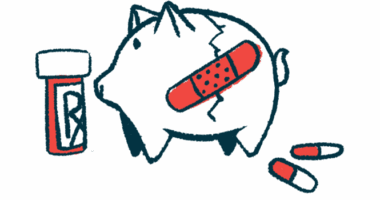The Importance of Connecting With People Who Understand the Rare Disease Journey
Columnist Jaime Christmas finds solace in virtual amyloidosis communities

In my columns, I share my experience as a caregiver to a spouse who suffered from hereditary ATTR amyloidosis. Whenever I sit down at my desk to write, I say a little prayer that my stories will comfort readers, no matter the topic. I hope that others feel encouraged and less alone on their journey, knowing there’s a 52-year-old woman in New Zealand who understands.
I am fortunate to have the opportunity to write for an online platform whose members care deeply for amyloidosis patients and caregivers. My column allows me to relay insights and struggles that would ordinarily be difficult to discuss with the people around me.
The reality of being affected by a complicated and obscure illness like hATTR amyloidosis is that you don’t often encounter people who truly understand what you’re going through. I have lost count of how many times the same people have asked me about the disease. But I don’t fault them for wanting to learn. I’d rather repeat information until it sticks than not have an opportunity to share it at all.
Since my husband Aubrey‘s passing on May 22, I have been digging into my advocacy work for the New Zealand Amyloidosis Patients Association. My husband and I set up this charitable organization in 2019 to create a pathway forward for sufferers of the disease.
Looking back, I can see that positive shifts have happened, but not to the extent we had hoped. The patients we support here in New Zealand still don’t have access to the latest approved treatments, and there are still vast gaps within our healthcare system. Patients often don’t see critical specialists, as we have a shortage of healthcare professionals in our country. On top of that, accessing hematologists, cardiologists, and neurologists can be even more complicated when a patient lives far away from big hospitals.
However, I know that our association’s challenges and goals are not unique to amyloidosis. Many other rare disease advocates are fighting for improved care and treatment options. It’s important to band together to make our collective voice louder, ensuring people take notice. I have made wonderful friends with people affected by rare disorders such as fetal anticonvulsant syndrome and Ehlers-Danlos syndrome. It is always encouraging to meet like-minded advocates.
Therefore, I highly encourage amyloidosis patients and caregivers to connect with others in the rare disease community, as you can find people who truly understand your situation. Social media platforms like Facebook and Instagram are a good place to start, as there are many dedicated communities you can join and participate in.
I often learn a great deal from the following Facebook groups:
- Amyloidosis Australia Support Group
- NZ Amyloidosis Patients Association
- Amyloidosis ATTRv (hATTR)-Hereditary-FAP-FAC
- ATTR Amyloidosis All Ireland Support Group
- Amyloidosis Alliance
- Amyloidosis Foundation
- Hereditary Amyloidosis Canada Support Group
How have you connected with the amyloidosis community? Please share in the comments below.
Note: FAP News Today is strictly a news and information website about the disease. It does not provide medical advice, diagnosis, or treatment. This content is not intended to be a substitute for professional medical advice, diagnosis, or treatment. Always seek the advice of your physician or other qualified health provider with any questions you may have regarding a medical condition. Never disregard professional medical advice or delay in seeking it because of something you have read on this website. The opinions expressed in this column are not those of FAP News Today or its parent company, Bionews, and are intended to spark discussion about issues pertaining to familial amyloid polyneuropathy.








Leave a comment
Fill in the required fields to post. Your email address will not be published.